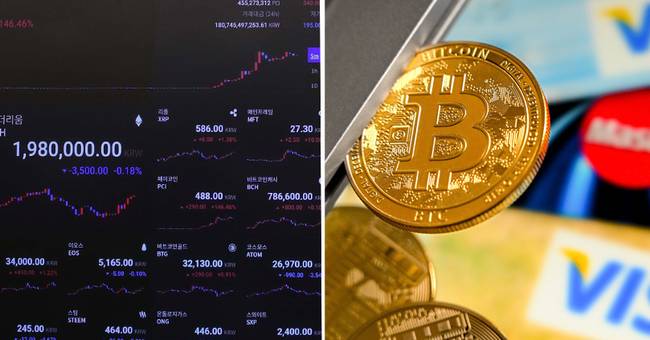What affects the price of bitcoin?
In the long run, investors' belief in the importance of the cryptocurrency will have in future financial systems.
Will it revolutionize it and take over a significant portion of transactions and act as a digital gold?
Or is it rather a digital tulip bulb?
On top of the big speculation bubble "tulip bulb mania" in the 17th century, a tulip bulb could cost as much as a house in central Amsterdam.
Right now you do not get more than one wardrobe there for a bitcoin, so there is at least a bit left to the tulip top.
In the short term, the price is largely influenced by two gentlemen: Elon Musk and Xi Jinping.
The Tesla founder is the main influencer in terms of the ability to make the price of cryptocurrency rush and plummet.
His tweets are for the crypto market what quarterly reports are for the stock market.
It was Musk's belated awakening to the fact that it takes a lot of electricity to mine new bitcoins and his message that Tesla would thus no longer let people buy a car with bitcoin that started the price drop.
Then Beijing stepped in and threw fuel on the fire with new bitcoin regulations and bans.
Power over the financial system
The latest demand from Beijing came on Friday night and aims at the extraction of new bitcoins. They are created through so-called "mining" as a reward for those who with their computer power set up and verify transactions within the network. Deputy Prime Minister Liu He´'s statement on "cracking down on bitcoin mining" does not seem to be a direct ban, but is perceived as such an escalation in Beijing's bitcoin hostility that several bitcoin hackers have announced that they will cease operations there. .
In China, most of the world's bitcoins are mined, not least due to access to cheap energy, which is a crucial factor for the profitability of mining because the business is so energy-consuming.
The price of electricity is so important that some switches before the rainy season move their equipment to remote areas with large hydropower plants that can then offer surplus electricity at a lower cost.
But otherwise, it is largely coal power that counts, and it is speculated whether China's emissions target is behind Beijing's latest crackdown on mining, which caused the bitcoin price to plummet by almost 20% this weekend.
But there is a less noble explanation.
It's about power.
Power over the financial system.
"Look away for a moment, and despair has turned to hope"
Bitcoin is based on a decentralized structure, where transactions take place directly between nodes in the network, without passing any central hub that can be controlled by authorities. The exact opposite of what a state that likes to control its citizens wants. And China's central bank is developing its own digital currency, which is currently being pilot-tested in several regions, with the hope that it will become the Chinese's new everyday currency. With central control and full transparency for the Communist Party in what people do with their money and to whom they send it. Chinese people who manage to bring money out of the country with the help of cryptocurrencies are a loophole that Beijing is happy to close.
It is therefore entirely logical why China's supreme leader Xi Jinping is on the warpath against cryptocurrencies.
What explains Elon Musk's shift from having talked up Bitcoin for a long time to pulling the rug for it with his environmental proposal (which is based on old well-known facts) is less understandable.
Die hard-fans of Bitcoin do not care.
They categorize everything that has to do with China, and now also Musk, as "RD & D".
Noise, which only intends to discourage people from jumping on the Bitcoin train.
Whether this crypto train is heading for Eldorado or out over the cliff is another matter.
At the time of writing, the bitcoin price has at least risen by 18 percent in 18 hours.
Look away for a moment, and despair has turned to hope.
Everything is as usual in the Bitcoin world.

